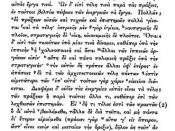Dreams According to The National Sleep Research Project conducted by the Australian Broadcasting Corporation, the average person sleeps seven hours per night. Two of these hours usually consist of REM (Rapid Eye Movement) sleep, which is the portion of sleep in which most of our dreams occur. Since we spend so much of our lives sleeping, mankind has always been fascinated with the mystery and myths behind dreams. There have been many philosophies made about dreams. Philosophers as early as Plato have made classifications as to what dreams really are. Plato believed that much like everyday sensory perceptions, dreams are nothing but an imperfect appearance of his "world of forms"àin which we all possess the "true"àform, but must find it within. Plato also believed "dreams were one of the many ways by which the "gods"àconveyed their intentions to mankind. At the same time he allowed that natural causes"æcan give rise to dreams."ÃÂ
Some scientists believe that dreaming is nothing but "a time of mental restoration where the brain can sort out and store new information acquired during the day."ÃÂ There are also many opinions as to whether or not dreams can be interpreted. Some people believe that dreams do not have a deep meaning and have no real function, and therefore cannot be interpreted. Others, such as Freud and Jung believe that they can be interpreted. Aristotle wrote On Dreams , which was somewhat of a prelude to the famous book written by Freud, The Interpretation of Dreams . While there are many philosophies about dreams, the theories of these latter two philosophers seem to be the most rational. Dreams are not accumulations of sensory perceptions that can be interpreted.
According to Aristotle there are only two ways in which a person can acquire knowledge, one being...


